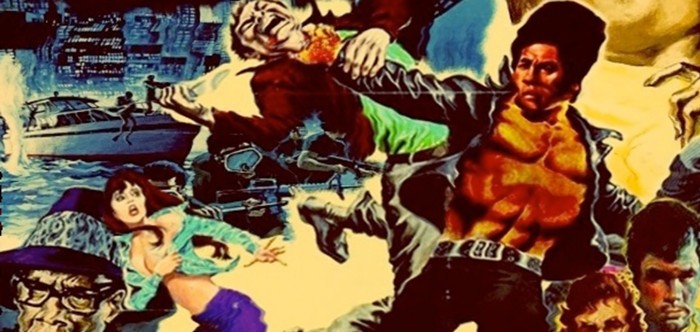WHEN I WAS 15 years old I purchased a heavily used copy of Stryper: In the Beginning on VHS with the sole intention of mocking it. Such ironic purchases were a rare treat for a kid pulling in minimum wage, but the sheer allure of the band's image plastered on the videocassette's cover—a shoulder-to-shoulder mass of yellow and black spandex, shimmering tufts of chest hair, and enough AquaNet to carve a formidable slab out of the ozone layer—was just too much for my tender teenage eyes to ignore. Even more surprising was my tumble into Stryper fandom, an unexpected plunge into the depths of Christian hair metal that thankfully started and stopped with Stryper (sorry, Petra). The back catalog was purchased, T-shirts were ordered from an ad in the back of Circus magazine, and I even went so far as to look up Isaiah 53:5, the biblical verse from which they took their name (it had something to do with transgressions and stripes).
For those outside the flock, the appeal of Stryper is limited. The screeching, proselytizing wail of Michael Sweet and the guitarsturbation solos of Oz Fox made Stryper the first (somewhat) church-sanctioned metal act—one that gave kids reprieve from their parents' Mind Garage and Larry Norman LPs. While hair bands spilled from the sinful Rainbow Room and the Whisky a Go Go, Stryper were a product of the land of television evangelists (Orange County, California), close enough to the riffraff to be influenced by the musical culture around them, but tucked safely away by the church. Those filled with the holy spirit are well aware of Christian rock's finest metal ensemble, but for untouched souls, here is the secular guide to Stryper:
The Yellow and Black Attack! [1984]
Quick out of the gates with their debut EP—which later was released as an LP—Stryper establishes their Jesus-first, rock-second mantra in the raucous opening number "Loud 'n' Clear" and the motivational call-to-Christ, "You Know What to Do." For those curious, "Him" appears in the lyrics in the third line of "Loud 'n' Clear." Remarkable restraint, considering they waited all of six words before dropping "God" on their 1985 follow-up Soldiers Under Command.
Soldiers Under Command [1985]
The first Christian metal album to go gold, Stryper flaunted their success on the cover of Soldiers Under Command by posing atop a customized yellow and black all-terrain vehicle while holding an arsenal of high-powered weaponry. Sadly such armed bravado was neutralized by the soggy ballad, "First Love." Also, somewhere right this very second, that vehicle—the Batmobile of Christian heavy metal—is sitting unused in someone's garage. It boggles the mind.
To Hell with the Devil [1986]
Stryper's breakthrough album ushered in more flying bibles (like your mom's panties at a Tom Jones concert, fans would pelt the band onstage with the good book) and assistance from the sinful forces at MTV, who championed a pair of the album's singles. If you must own one Stryper album—and you must—start here.
Against the Law [1990]
This was either Stryper's Tusk or Unmasked, when the band shed the yellow and black spandex and demanded they be taken seriously. Buoyed by Sweet's crisis of faith, Against the Law was the band's least successful album. It's a shame, since both "Rock the People" and the Van Halen-influenced "Not That Kind of Guy" are a pair of their best songs. Christ, you people, it doesn't always have to be about Jesus.
Everything Else
The band's secular dalliances were brief, and they returned to their hard-rocking, Lord-praising ways in future recordings. But like most hair metal dinosaurs—even those who believe that dinosaurs are only a few thousand years old—their more recent efforts (especially 2005's nü-metal diversion Reborn) prove that Stryper's best days are a thing of the past.



















